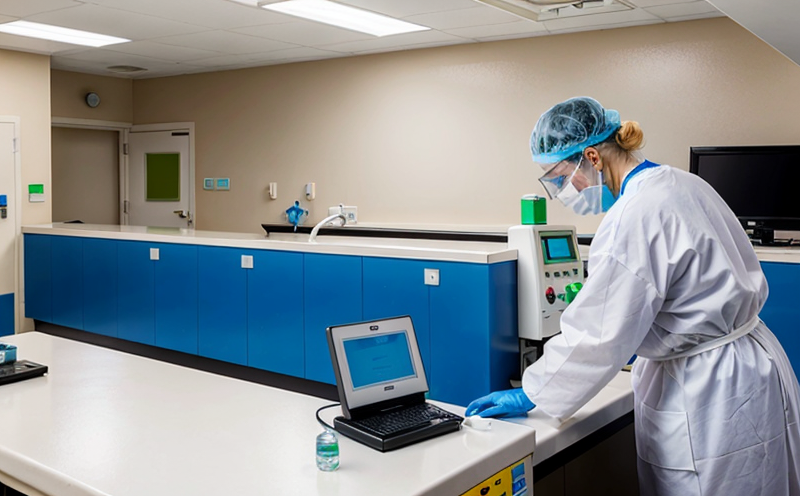Swab Testing for MRSA Contamination on Hospital Surfaces
The detection and quantification of Methicillin-resistant Staphylococcus aureus (MRSA) contamination on hospital surfaces are critical measures in healthcare hygiene monitoring. MRSA is a significant concern due to its resistance to many antibiotics, which can lead to severe infections if not properly managed.
Swab testing involves collecting samples from various high-risk areas within hospitals such as patient rooms, surgical suites, and intensive care units (ICUs). The swabs are then analyzed using culture-based or molecular techniques. Culture-based methods involve incubating the sample on selective media to identify colonies of MRSA, while molecular techniques use polymerase chain reaction (PCR) for rapid detection.
High-quality swab testing services ensure the accurate identification and quantification of MRSA contamination levels. This data is essential for healthcare facilities to implement effective infection control strategies. By regularly monitoring MRSA presence on surfaces, hospitals can minimize the risk of nosocomial infections, thereby protecting patient safety.
The process begins with proper specimen collection using sterile swabs. The swab is then transported in a suitable transport medium to prevent bacterial degradation or growth before being analyzed in the laboratory. Compliance with international standards such as ISO 17025 ensures that our testing methods and facilities meet stringent quality requirements.
Our laboratories employ advanced instrumentation for accurate analysis, including PCR machines and automated colony counters. Reporting is comprehensive, providing quantitative data on MRSA contamination levels along with actionable insights to healthcare managers. This information helps in making informed decisions regarding cleaning protocols and staff training programs.
- Environmental and Sustainability Contributions:
- The use of swab testing for MRSA contamination supports sustainable practices by facilitating early identification and mitigation of potential health risks. Early intervention can reduce the need for extended hospital stays, thus minimizing resource consumption.
- This service also contributes to public health by preventing the spread of antibiotic-resistant bacteria in healthcare settings.
Quality and Reliability Assurance
The quality and reliability of our swab testing services are paramount. We adhere strictly to international standards such as ISO 17025, which governs the competence of testing laboratories. Our protocols ensure consistent and reproducible results.
Our team consists of experienced microbiologists and technicians who follow strict procedures for specimen collection and transport. This ensures that each sample is handled accurately from start to finish. The use of validated methods guarantees that the test outcomes are reliable and accurate, which is crucial for effective infection control measures.
We also participate in proficiency testing programs organized by recognized bodies such as the College of American Pathologists (CAP) and the European Federation of Clinical Microbiology and Infectious Diseases Societies (EFCMI). These programs provide an additional layer of assurance that our laboratory meets the highest standards for accuracy and precision.
Our commitment to quality does not stop at testing. We continuously monitor and improve our processes through internal audits and external reviews. Regular training sessions ensure that all staff are up-to-date with the latest techniques and best practices in MRSA detection.
International Acceptance and Recognition
The swab testing for MRSA contamination on hospital surfaces is widely recognized and accepted internationally. This service aligns with global healthcare standards, ensuring that the results are valid and comparable across different regions.
Our laboratory has been accredited by several prestigious bodies including ISO/IEC 17025:2017 for clinical testing services. These accreditations underscore our commitment to maintaining high-quality standards and provide assurance to healthcare facilities worldwide that they can trust our results.
The MRSA swab test is a critical component of infection control programs recognized by organizations such as the World Health Organization (WHO) and the Centers for Disease Control and Prevention (CDC). By adhering to these global guidelines, we contribute to the overall improvement in healthcare hygiene standards.





